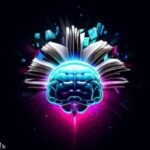Mastering the Art of Effective Communication: Essential Skills for Success
Introduction:
Effective communication is a fundamental skill that plays a crucial role in achieving success in various aspects of life. Whether it’s personal relationships, professional endeavors, or even mundane day-to-day tasks, effective communication can shape our interactions and determine the outcomes. In this article, we will explore the essential skills required to master the art of effective communication and provide insights on how they can be practiced and improved upon.
HTML Headings:
1. Why is effective communication important?
2. Developing active listening skills
3. The art of non-verbal communication
4. Understanding and adapting to different communication styles
5. Overcoming barriers to effective communication
6. Practicing empathy and emotional intelligence
7. Enhancing communication skills in professional settings
8. Nurturing effective communication in personal relationships
9. Tips for improving communication skills
10. FAQs
Why is effective communication important?
Effective communication is the foundation of building strong relationships, both personal and professional. It allows individuals to convey their thoughts, ideas, and emotions clearly and accurately, minimizing misunderstandings and conflicts. Effective communication also plays a vital role in leadership, negotiation, team collaboration, and problem-solving, making it an essential skill for success.
Developing active listening skills:
Listening actively involves not just hearing the words being spoken, but also paying attention to the speaker’s tone, body language, and emotions. It requires full engagement, focusing on the speaker, and demonstrating interest and understanding. Developing active listening skills promotes effective communication by ensuring that all parties feel heard and valued.
The art of non-verbal communication:
While verbal communication is crucial, non-verbal cues such as facial expressions, body language, and gestures can convey a wealth of information. Understanding and utilizing non-verbal communication effectively enhances the overall effectiveness of our message and helps to create a positive and trustworthy atmosphere in our interactions.
Understanding and adapting to different communication styles:
Everyone has a unique communication style influenced by various factors such as culture, upbringing, and personal experiences. Being aware of different communication styles allows individuals to adapt their approach based on the situation and the people involved. Flexibility in communication helps to bridge gaps and foster understanding between diverse groups.
Overcoming barriers to effective communication:
Communication barriers can hinder the message’s clarity and impede effective communication. These barriers may include language barriers, distractions, preconceived notions, or even misunderstandings due to cultural differences. Identifying and overcoming these barriers is essential for effective communication and can be achieved through active listening, clarification, and openness to feedback.
Practicing empathy and emotional intelligence:
Empathy and emotional intelligence are crucial elements of effective communication. Empathy allows individuals to understand and share the feelings of others, fostering a deeper connection and building trust. Emotional intelligence helps manage one’s own emotions and respond appropriately to others’ emotions, creating an open and safe communication environment.
Enhancing communication skills in professional settings:
Effective communication is especially vital in professional settings. It enables clear articulation of ideas, increases productivity, fosters collaboration, and promotes a positive work environment. Skills such as concise writing, delivering effective presentations, and active participation in meetings are essential for effective communication at work.
Nurturing effective communication in personal relationships:
Strong personal relationships are built on effective communication. Sharing thoughts, feelings, and concerns openly strengthens bonds and promotes mutual understanding and support. Active listening, expressing gratitude, and resolving conflicts through effective communication can nurture healthy relationships.
Tips for improving communication skills:
1. Practice active listening daily.
2. Pay attention to non-verbal cues and practice interpreting them accurately.
3. Be mindful of your own communication style and adapt as necessary.
4. Seek feedback and be open to constructive criticism.
5. Cultivate empathy and emotional intelligence through self-reflection and understanding others’ perspectives.
6. Practice clear and concise writing and speaking.
7. Use visual aids or storytelling techniques to enhance understanding.
8. Seek opportunities to engage in public speaking or presentations to gain confidence.
9. Practice conflict resolution skills through effective communication.
10. Enhance your cultural awareness and sensitivity to promote effective communication with diverse groups.
FAQs:
Q1. Can effective communication be learned?
Yes, effective communication is a skill that can be learned and improved upon through practice, self-awareness, and continuous learning. It involves understanding various techniques, being open to feedback, and actively applying the strategies in everyday life.
Q2. How can I overcome my fear of public speaking?
Public speaking can be intimidating, but with practice and preparation, one can overcome this fear. Start by taking small steps, such as presenting in front of a friendly audience or joining public speaking clubs. Utilize visualization techniques, practice breathing exercises, and focus on the message rather than the fear of being judged.
Q3. Why is active listening important for effective communication?
Active listening ensures that the speaker feels heard and understood. By fully engaging in the conversation, actively listening allows individuals to respond appropriately, ask relevant questions, and avoid misunderstandings. It is a key component of effective communication that fosters trust and improves overall understanding.
Q4. How can I improve my written communication skills?
Improving written communication skills involves practicing clear and concise writing, paying attention to grammar and punctuation, and organizing thoughts logically. Seeking feedback from others, reading extensively, and learning from well-written resources also contribute to enhancing written communication skills.
Q5. How can cultural differences affect communication?
Cultural differences can lead to misunderstandings and misinterpretations in communication. It is important to be aware of cultural nuances and to approach communication with sensitivity and respect. Being open to learning about different cultures and adapting our communication style accordingly ensures effective interaction with individuals from diverse backgrounds.
Conclusion:
Effective communication skills are essential for success in various aspects of life. Mastering the art of communication requires continuous practice, self-awareness, and a willingness to adapt to different situations. By actively listening, utilizing non-verbal cues, understanding different communication styles, and cultivating empathy, individuals can foster stronger relationships, collaborate effectively, and overcome barriers to achieve success. With these skills, one can navigate personal and professional interactions with confidence and clarity, ultimately leading to a more fulfilling and accomplished life.





